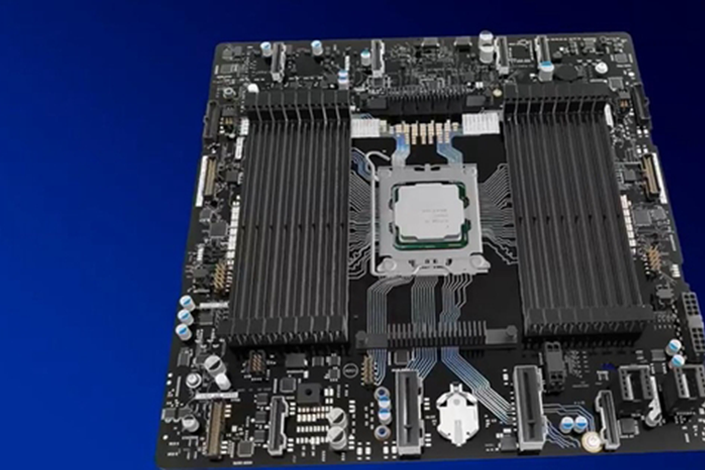
Chinese computer manufacturer Powerleader Computer System Co. Ltd. is fending off allegations that its new central processing unit (CPU) is an old Intel chip in disguise, saying it was developed with support from the U.S. chipmaking giant.
The Shenzhen-based company unveiled its first-generation Powerstar P3-01105 CPU in early May. Chairman Li Ruijie said at the launch event that the chip, designed mainly for desktops in the commercial market, is based on Intel’s x86 architecture under a collaboration with the U.S. firm.
But in the product’s marketing materials published by Powerleader, there was no mention of any deal with Intel Corp., which was widely viewed as the company’s attempt to frame the CPU as primarily a domestic effort .
Following the launch event, similarities to the Intel product were immediately recognized by a number of tech specialists and enthusiasts , who said that the new Powerleader CPU is actually a rebadged version of an older Intel processor.
Key parameters including specifications and performance of the Powerstar chip published on May 26 by Geekbench, a testing site run by Canadian software developer Primate Labs, seemingly revealed it to be identical to Intel’s Core i3-10105 Comet Lake CPU. Tom’s Hardware, a popular tech news and review site, pointed to a number of identical design elements and physical attributes between the two chips.
This has led to accusations against the company of overexaggerating the chip as a domestic effort, partly as a way to obtain government subsidies. Beijing has been stepping up support for semiconductor research and development via subsidies and additional funding as part of a nationwide push for self-sufficiency in the sector as it faces a U.S.-led effort to limit its access to chip technology.
In a statement posted on Wednesday by Li on Weibo, Powerleader reiterated that the Powerstar chip is a “custom product developed under the support of Intel.” It also said the company has not applied for any government subsidies for the project. The firm also removed online marketing materials promoting the new processor the same day.
However, the statement did not clarify or offer any details on what kind of customization was done on the Intel processor. The U.S. firm has not made a public statement about the issue.
As of Saturday, neither Intel nor Powerleader had responded to Caixin’s requests for comment.
“Standing on the shoulders of the Intel giant, … we will come up with our own way to solve the source code problem,” Li said in a separate statement on May 11.
At the May 6 event, Li touted the launch as “a key step on the journey to achieve independence and control of domestic x86 chips.” Powerleader has plans to build nine production bases across China and for sales to reach 1.5 million units annually.
But semiconductor experts whom Caixin spoke to expressed doubts about whether Powerleader would be able to deliver. They said the company has neither the determination to invest heavily in chipmaking, nor the expertise to fully understand the technology behind Intel’s processors.
Powerleader, established in 2003, mainly makes servers and personal computers. According to a report published by market researcher IDC, it had a less than 5% market share in China’s server market in 2022.
Some observers went as far as to compare this incident to a scandal in 2006 when Chen Jin, a prominent Shanghai Jiao Tong University dean and professor, defrauded government funding and faked research on his Hanxin digital signal processors, which were revealed to be unauthorized, rebadged versions of Motorola chips.
But Powerleader’s case is different from the Hanxin chip scandal in that the former had a business deal with Intel in place, said experts. The Chinese firm might have just oversold the homegrown aspect of the chip in its product marketing, potentially due to unfamiliarity in the differences between self-developed and custom chips in the industry, they said.
One investor in the domestic chip industry told Caixin that through their cooperation, Powerleader could act as Intel’s agent and sell the modified chips to many downstream businesses that are of a higher entry threshold to Intel, such as areas of digital applications and innovation. He pointed to a similar cooperation model between Intel and peer Montage Technology Co. Ltd. (688008.SH)
Zhai Shaohui also contributed reporting.
Contact reporter Kelsey Cheng (kelseycheng@caixin.com) and editor Jonathan Breen (jonathanbreen@caixin.com)
Get our weekly free Must-Read newsletter.







